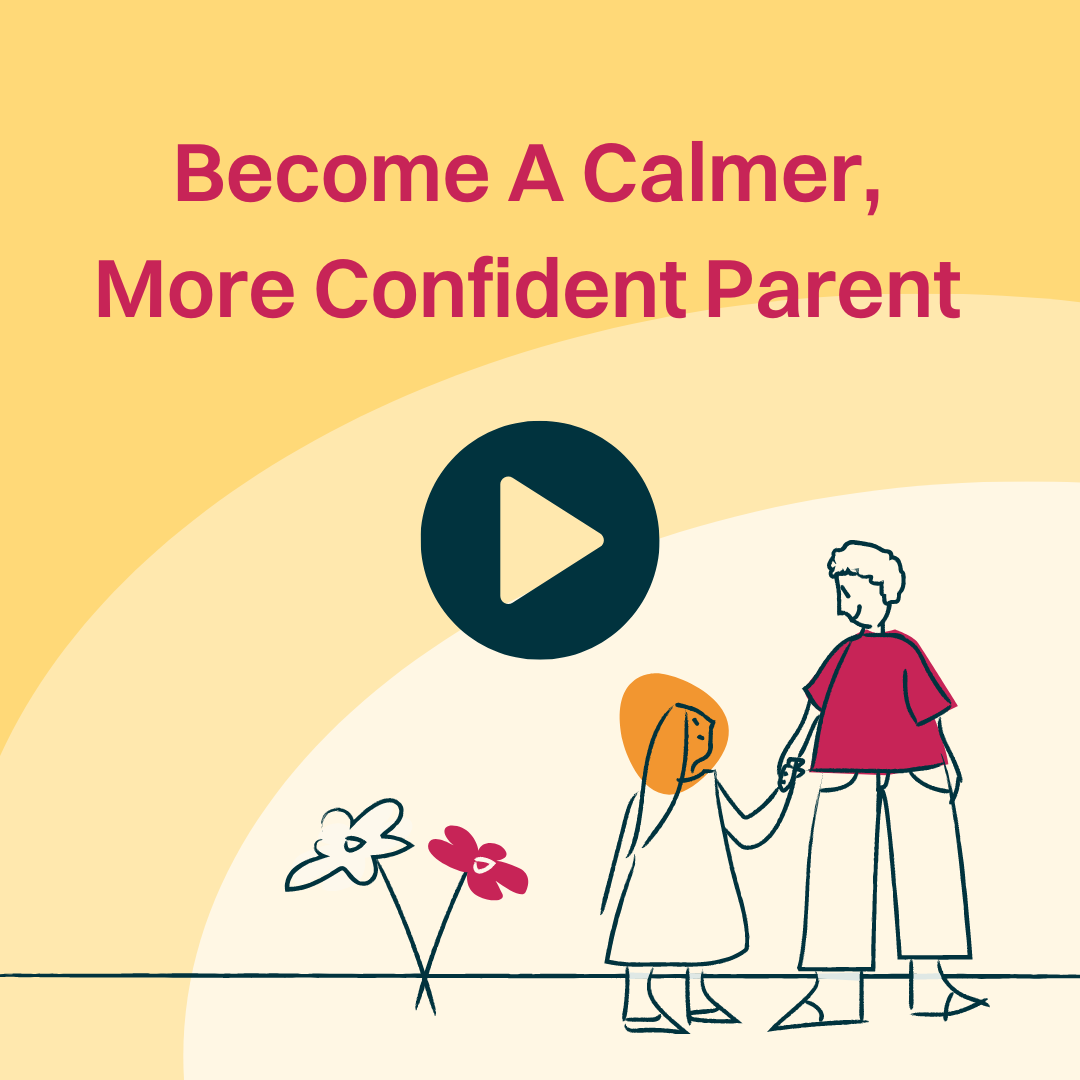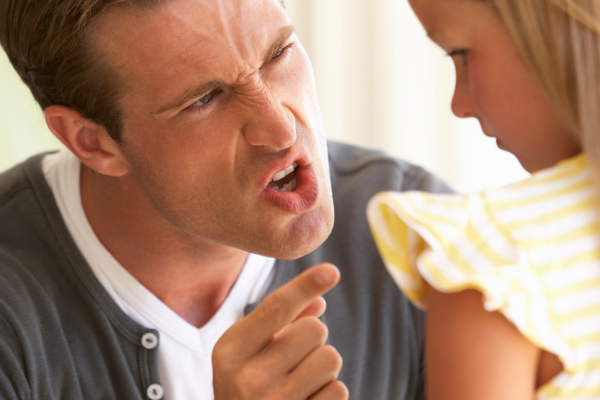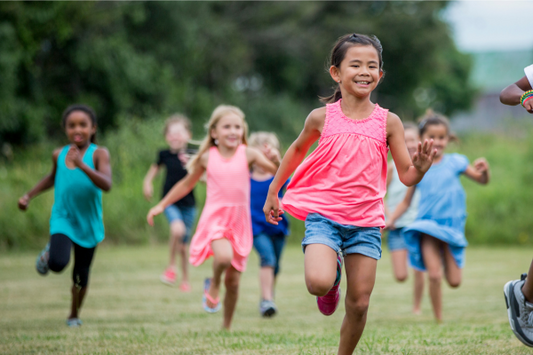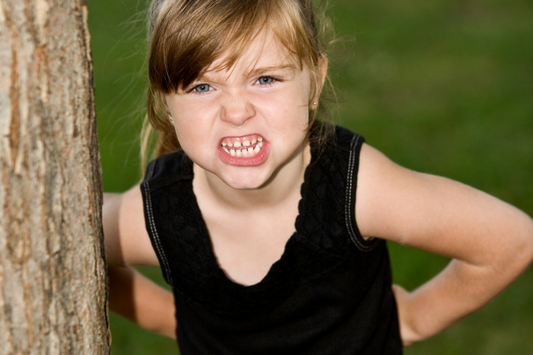Which of us on occasion hasn’t got angry with our children? It could be because they have done something really annoying, or because we are tired and irritated and lose our rag. If it isn’t too severe and doesn’t happen too often, this will not have harmful effects on your child.
But what if they are one of those children who is repeatedly challenging or defiant, either by intention, or because they are rather impulsive and can’t control themselves (which in more severe forms can amount to aspects of ADHD). Research tells us that they cop much more harsh criticism than more compliant, well-behaved children.
Equally, some parents simply can’t stop themselves letting rip. It could be because they have had a bad day at the office, or are tired or ill. And in some cases there are more long-term problems, from worries about money to family difficulties and strained relationships with their partner. Some parents are just unaware that they’re doing it, and they may in turn have received it from their own parents.
Indeed, for the latter, the clinical psychologist Alyson Corner has launched a website called ‘my horrid parent‘. This explores fully the damaging effects of having ongoing negative criticism of a parent, which often makes people continue to feel lonely and miserable and rubbish about themselves and their achievements, well into adulthood. All of us, whether we are aware of it or not, carry the impact of our parents around with us, often completely unconsciously. However, the website shows plenty of things you can do to make things better. 
And what about the effects on the children? In the 1960s, the founding father of scientific child mental health, Michael Rutter, invented a measure called Expressed Emotion, where during a one-hour interview the number of critical comments about another person (who would not be present) were measured. He studied all the 2,000 children on the Isle of Wight when they were 10, and then followed them up aged 28. Those who had been exposed to much criticism or any hostility in childhood had much lower self-confidence and self-esteem as adults, and more depression. Later Michael Rutter was awarded a knighthood for his research and made a Fellow of the Royal Society.
On 11 April 2024, a major international conference called “Words Matter” was launched, with the backing of the World Health Organisation due to the energy of the charity’s founder, Jessica Bondy. At the conference delegates heard how up to 40% of children are subject to verbal abuse. Recent research shows it has direct effect on the brain and nervous system, making children more jumpy and nervous; this is in addition to all its detrimental psychological effects.
Harsh words can be both in the actual words said, but equally, if not more important, is the tone of voice. You could say with a warm rather admiring voice “you little devil” when they have made a little mess but are giving you a winning smile. Or you could say “you little devil” with fury and a raised voice full of anger and hostility. This is what is damaging.
It can sometimes be quite subtle, even amongst parents who intend to praise: they might say “well done for tidying your bedroom” but then continue with some critical tone “why can’t you do that every day?” Or “that’s great that you got 70% in the chemistry test, but why didn’t you get that in maths and physics too?”. If you play that back to yourself, think which bits of those sentences that you remember? Is it the praise, or is it the criticism with edge of derogatory tone?
Another way of being harsh is with threats. A parent might say in anger “if you don’t behave immediately, you won’t get any birthday presents”. Or “if you don’t stop crying, I will really give you something to cry for”. Often these threats will not be followed through, but the frightening effect on the child and the nervous system will remain with them.
Harshness is commoner amongst parents who have an authoritarian style with their children. To find out your style take our parenting style quiz.

So what can we do about it?
- Firstly, become aware of when you’re talking in a critical tone and words.
- Immediately, even in the heat of the moment, stop and think what is going on for you as well as for your child.
- More generally, make sure you build up your child with praise when they are behaving acceptably, and fire off little appreciative love darts. Or as the Americans say “Catch ‘em being good”
-
Plan ahead: if this situation is going to happen in future…
- If it is chiefly your child misbehaving, think through the consequences that you will apply, and how you can do it using a calm voice rather than irritated one.
- If it is mainly about you having had a bad day or other things affecting your balance and well-being, think about these, and plan ahead - what will you say to yourself? Maybe “I am going to keep my calm” (even though you have to do this through gritted teeth); “he behaves reasonably most of the time”. You may wish to do some quick breathing exercises.
- If your child has done something aggressive (hitting somebody else) or destructive (breaking important belongings) consider using calm down time. Where for a brief period you put your child in a quiet place and don’t engage with them until they calm down and are quiet for one minute. Stay close by so you can see when they are settling and once they have calmed down, then immediately be warm and positive with them and help them get on with something constructive that you encourage.
- And if you see somebody else being harsh with your child, be it a partner, friend, or grandparent, be brave and speak up! You might need to take them aside and explain to them its harmful effects and think with them how they could have done it differently.
These methods really work! Our own studies show that parents who follow them have children with considerably improved behaviour, and just as important, the number of critical comments is halved. So go and give it a try!
For more practical guidance on how to implement these methods including communicating with your child and some breathing exercises, start our online course.





